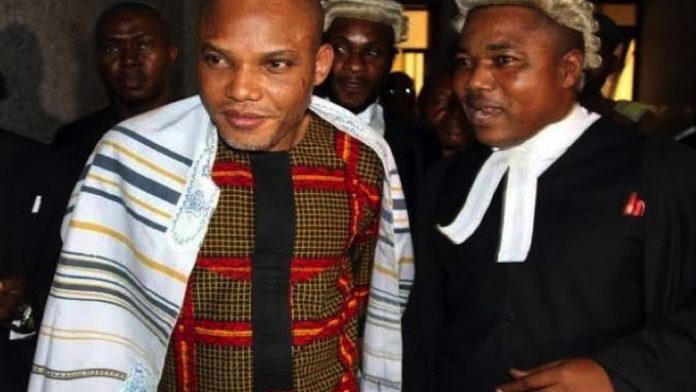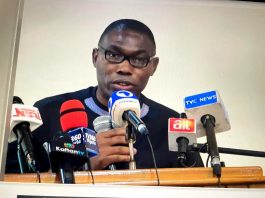A former counsel for the Indigenous People of Biafra (IPOB) and a human rights lawyer, Ifeanyi Ejiofor, has shared his thoughts on how Nnamdi Kanu can regain his freedom.
Speaking in a press statement on Tuesday, Ejiofor opined that Igbo political figures of integrity, working in consultation with the appropriate leadership, must lead the intervention for the release of Kanu.
Ejiofor stated that emotions must transcend rhetoric and misinformation.
He argued that it has become necessary for Igbo political heavyweights and legal minds to join forces and swing into action.
The statement read in part, “Given the labyrinthine complexity of Mazi Nnamdi Kanu’s legal odyssey, and the delicate interplay of law, politics, diplomacy, and public sentiment surrounding it, it is my considered, honest, and unwavering view that a structured, high-calibre intervention must now override the current cacophony of well-intentioned but strategically hollow commentary.
“It has become imperative, indeed unavoidable, that Igbo political heavyweights and legal minds of enviable global repute immediately swing into coordinated action; an intervention where influence speaks far louder than dramatic press releases, emotional outbursts, or roadside gallantry masquerading as “strategy.”
“To lead this elite intervention must be Igbo political figures of unimpeachable integrity and honesty, working in consultation with the appropriate leadership. For compelling reasons, I shall refrain from mentioning their names here.
“This group must incorporate eminent Igbo personalities drawn from the South-East state executives, federal cabinet members of Igbo extraction, and respected national figures whose names command gravitas, influence, and consequence across Nigeria’s political landscape.
“Once this political vanguard is unveiled, the next indispensable step is the constitution of a formidable team of legal luminaries, individuals of exceptional international distinction, who will assume full command of the legal architecture, particularly the highly sensitive appellate processes before us.”




